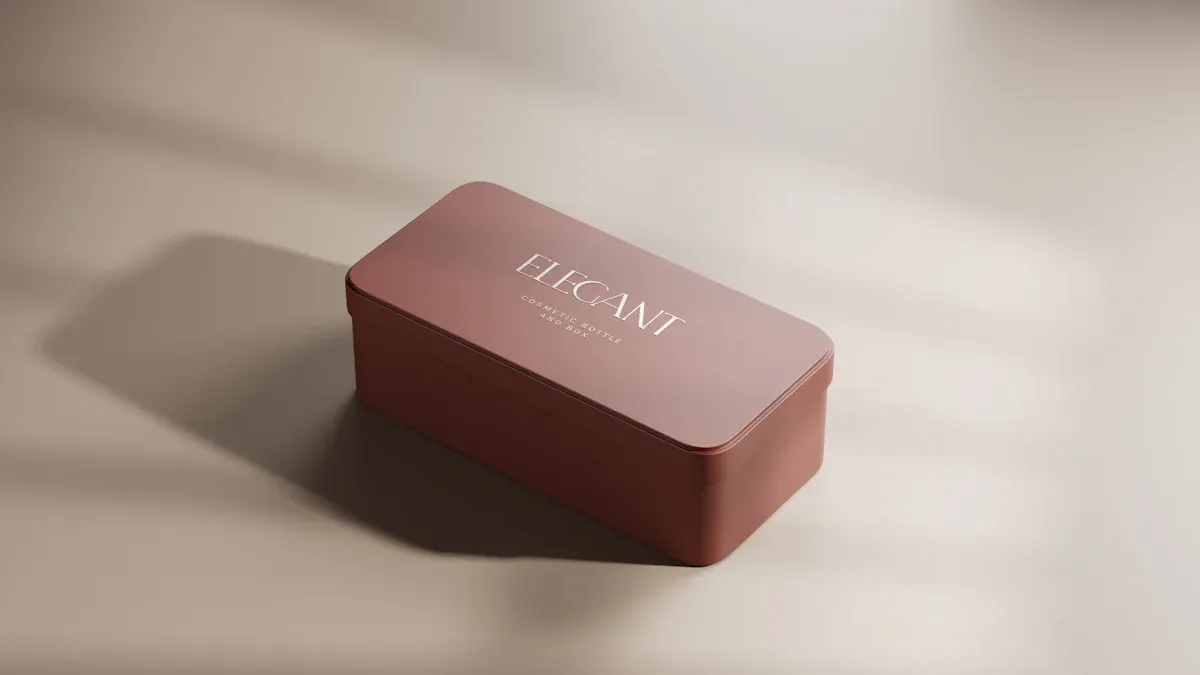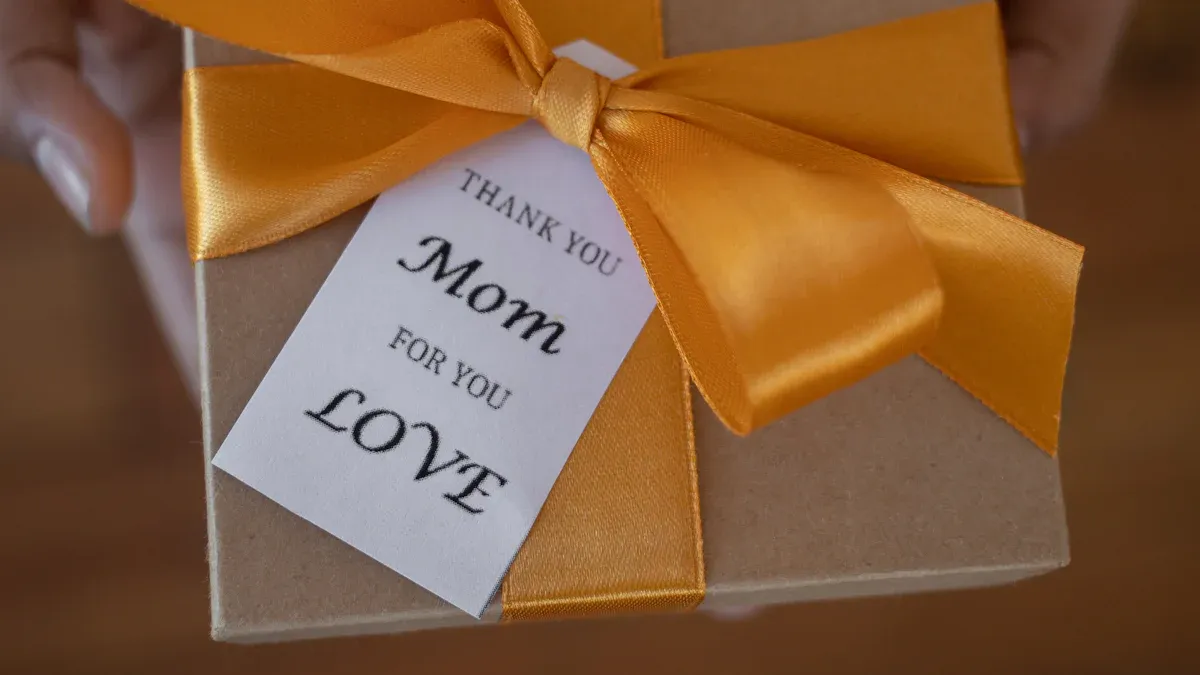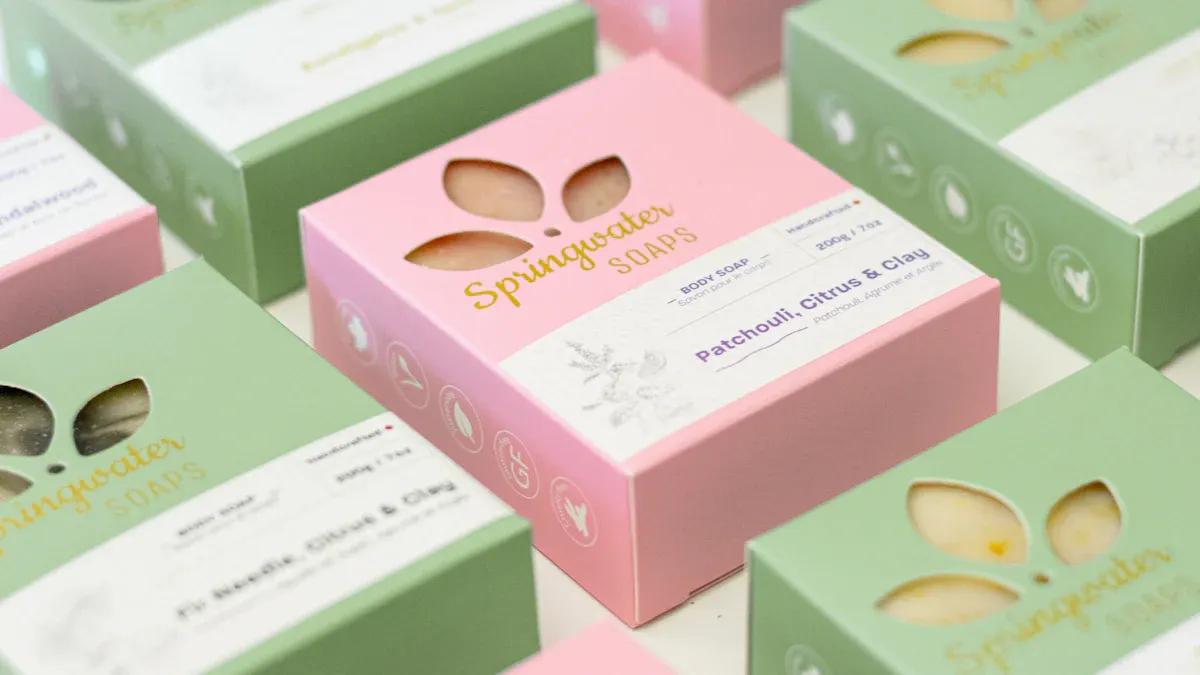Tips for Choosing the Perfect Cosmetic Packaging Box

When it comes to cosmetics, the packaging box does more than just hold the product. It’s the first thing your customers see, and it sets the tone for their entire experience. A well-designed cosmetic packaging box can make your brand feel exclusive and desirable. It can also signal high-quality ingredients and superior performance. Think of it as your silent salesperson, grabbing attention on store shelves or online. To truly stand out, you need packaging that balances functionality, visual appeal, and your brand’s unique personality.
Key Takeaways
Know who your buyers are to make packaging they like.
Pick materials that match your brand and are eco-friendly.
Use colors and fonts that show your brand’s style.
Check if the packaging is strong and easy to use.
Ask customers for opinions to improve and build loyalty.
Understanding Your Brand Identity
Your cosmetic packaging box should do more than just hold your product. It should tell your brand’s story and connect with your audience. To achieve this, you need to understand your brand identity and how it aligns with your customers’ expectations.
Define Your Target Audience
Who are you designing your packaging for? Knowing your target audience is the first step in creating packaging that resonates. Consider key demographic factors like age, gender, and income level. For example, younger audiences might prefer bold, trendy designs, while older customers may lean toward classic, elegant styles.
Demographic Factors | Description |
|---|---|
Age | Different age groups may prefer different packaging styles. |
Gender | Packaging may vary based on male or female preferences. |
Race | Cultural influences can affect packaging design. |
Religion | Certain religious beliefs may dictate packaging choices. |
Marital Status | Singles vs. married individuals may have different needs. |
Education | Education level can influence product understanding and appeal. |
Income Level | Higher income may correlate with luxury packaging preferences. |
By understanding these factors, you can design packaging that speaks directly to your audience and makes your cosmetics stand out.
Reflect Your Brand Personality in Packaging
Your packaging should reflect who you are as a brand. Are you bold and trendy or classic and sophisticated? Use consistent design elements like colors, fonts, and materials to communicate your personality. For instance:
Vibrant colors like yellow or pink can make your brand feel youthful and energetic.
Neutral tones like beige or gray convey elegance and timelessness.
Script fonts add a playful touch, while serif fonts feel more traditional.
Even the materials you choose matter. Sustainable packaging, like kraft boxes, shows your commitment to the environment, while glossy finishes can evoke luxury. Consistency in these elements helps customers recognize your brand instantly and builds loyalty over time.
Position Your Brand in the Market
In a competitive market, your packaging can set you apart. Use it to highlight what makes your cosmetic products unique. Add tactile elements like embossed logos or soft-touch finishes to create a premium feel. Include messaging that communicates your values, such as sustainability or cruelty-free practices.
Minimalistic designs can also help your packaging stand out by focusing on clarity and elegance. Interactive features like QR codes can engage customers and provide additional information about your cosmetics. By aligning your packaging with your brand’s values and personality, you can carve out a distinct place in the market.
Key Factors in Choosing a Cosmetic Packaging Box
When it comes to packaging your cosmetics, every detail matters. From the materials you use to the size and design, each choice plays a role in how your brand is perceived. Let’s break down the key factors you should consider.
Select the Right Materials
The materials you choose for your cosmetic packaging box can make or break your brand’s image. Not only do they need to protect your products, but they should also align with your values and appeal to your audience. Eco-friendly materials are becoming increasingly popular in the beauty industry. Here are some great options:
Cornstarch: A biodegradable and recyclable material that’s perfect for skincare jars.
Seaweed: Edible and dissolvable, offering a unique and sustainable option.
Beeswax: Moldable and protective, ideal for smaller items.
Post-Consumer Recycled (PCR) Packaging: Made from recycled materials, it’s a favorite for eco-conscious brands.
Bamboo: A renewable resource, great for lip balm or lipstick cases.
Paper: A versatile and long-standing eco-friendly choice.
By choosing the right materials, you not only protect your cosmetic products but also show your commitment to sustainability.
Determine the Ideal Size and Shape
Size and shape aren’t just about aesthetics—they impact storage, transportation, and shelf presence. Packaging that’s too large can lead to wasted space and higher shipping costs. On the other hand, a compact, cube-shaped design maximizes storage efficiency and reduces your carbon footprint.
Additionally, the size of your packaging influences how your products stand out on retail shelves. Eye-catching designs in the right dimensions can attract customers and boost sales. Remember, 81% of shoppers have tried new products simply because of appealing packaging. So, think strategically when deciding on size and shape.
Design for Visual Appeal
Your packaging design is the first thing customers notice. It’s your chance to make a lasting impression. Here’s how to nail the visual appeal:
The Role of Colors in Branding
Colors evoke emotions and help define your brand’s identity. For cosmetics, soft pastels can convey elegance, while bold hues like red or gold exude luxury. Choose colors that align with your brand personality and resonate with your target audience.
Typography and Font Choices
Fonts are more than just letters—they’re part of your brand’s voice. Unique custom fonts can set you apart, while clean, minimalistic typography ensures readability. Avoid overly complicated fonts that might confuse your audience.
Incorporating Logos and Custom Branding
Your logo is the face of your brand. Make sure it’s prominently displayed on your packaging. Consider adding embossed or foil-stamped logos for a premium feel. These small details can elevate your packaging and leave a lasting impression.
By focusing on these factors, you can create packaging that not only protects your products but also enhances your brand’s appeal.
Exploring Types of Custom Packaging Boxes

When it comes to packaging your cosmetics, the type of box you choose can make a big difference. From the outer packaging that grabs attention to the inner layers that protect your products, every detail matters. Let’s explore the options available to you.
Outer Packaging Options
Outer packaging is the first thing your customers see, so it needs to make a strong impression. Custom packaging boxes for cosmetics offer several advantages:
Branding and marketing: They reflect your brand identity, helping customers recognize and remember your products.
Increased perceived value: Unique designs can make your products feel more luxurious.
Protection of products: Sturdy materials keep your cosmetics safe during shipping.
Sustainable packaging: Eco-friendly options appeal to environmentally-conscious buyers.
Differentiation from competitors: Eye-catching designs help your brand stand out on crowded shelves.
Want to take it a step further? Add personalized touches like embossed logos or vibrant colors to create a memorable unboxing experience.
Inner Packaging Solutions
Inner packaging provides an extra layer of protection for your cosmetic products. It ensures they arrive in perfect condition while also offering space for important details like ingredients or usage instructions. Popular inner packaging options include:
Folding cartons
Sliding boxes
Slip lid boxes
Cardboard boxes
Pillow boxes
These solutions not only safeguard your products but also enhance their presentation. For example, a sleek sliding box can make your cosmetics feel more premium.
Product Containers and Their Importance
The container holding your cosmetic products plays a crucial role in both functionality and aesthetics. It needs to be durable, easy to use, and aligned with your brand’s image. Whether it’s a lipstick tube, a skincare jar, or a compact case, the right container can elevate the overall experience.
Consider materials like glass for a high-end feel or bamboo for an eco-friendly vibe. The design should also complement your outer and inner packaging, creating a cohesive look that reinforces your brand identity.
By carefully selecting each layer of your packaging, you can create a seamless and memorable experience for your customers.
Popular Trends in Cosmetic Packaging Design

Minimalist and Modern Styles
If you want your cosmetics to exude sophistication, minimalist and modern packaging styles are the way to go. These designs focus on simplicity and elegance, making your products feel timeless and refined. Here’s what defines this style:
CHARACTERISTICS | |
|---|---|
Limited Color Palette | A restrained selection of colors is employed to maintain simplicity and focus. |
Negative Space | Intentional empty areas surrounding design elements are used to reduce clutter. |
Typography | Clean and legible fonts are chosen for a refined and straightforward presentation. |
Texture | A tactile dimension is introduced to heighten the overall sensory experience. |
Logo Placement | Balancing visibility and subtlety is a crucial consideration. |
Functionality | Every element in the design serves a specific purpose. |
This packaging box style works well for brands that want to emphasize quality over quantity. It’s perfect for creating a sleek, high-end look that resonates with modern consumers.
Bold Patterns and Vibrant Colors
Want your cosmetic products to grab attention instantly? Bold patterns and vibrant colors can make that happen. These designs are all about standing out and leaving a lasting impression.
Bold patterns and vibrant colors make cosmetic packaging visually striking and memorable.
Eye-catching designs draw attention and create lasting impressions, encouraging engagement with the product.
Irregular patterns can be artistic and give packaging an edge that impresses customers.
Using this approach, you can create packaging that feels energetic and exciting. It’s especially effective for younger audiences or brands that want to project a fun, adventurous vibe.
Eco-Friendly and Sustainable Packaging
Sustainability isn’t just a trend—it’s a necessity. Eco-friendly packaging for cosmetics not only helps the planet but also boosts your brand image. When customers see that you care about the environment, they’re more likely to trust and support your brand.
Using sustainable materials offers several benefits:
Protection
Strong barrier performance
Good strength
Plastic film alternative
Reduces carbon footprint
Additionally, eco-friendly packaging often involves fewer materials, which can lower shipping and storage costs. While the initial investment might be higher, it pays off in the long run. Customers are often willing to pay more for sustainable options, and government incentives can further offset costs. By choosing sustainable packaging, you’re not just protecting the planet—you’re also building a stronger connection with your audience.
Luxurious and Premium Packaging Designs
When it comes to luxury, your packaging should feel like an experience. Premium designs don’t just protect your cosmetics—they elevate them. They make your customers feel special, even before they open the box. If you want your brand to exude elegance, here’s how you can achieve that.
Use High-End Materials: Opt for materials like velvet-lined boxes, metallic finishes, or textured paper. These instantly add a touch of sophistication. Glass containers or gold accents can also make your products feel more exclusive.
Add Unique Features: Magnetic closures, ribbon pulls, or embossed details can create a memorable unboxing moment. These small touches make your packaging stand out.
Focus on Details: Luxury is all about the little things. Consider foil stamping, soft-touch finishes, or intricate patterns. These details show your commitment to quality.
Tip: Customers often associate premium packaging with high-quality products. Investing in luxurious designs can increase perceived value and customer loyalty.
Luxury packaging also allows you to tell a story. For example, you can use elegant typography and minimalist designs to highlight your brand’s sophistication. Or, you can incorporate rich colors like deep burgundy or royal blue to evoke a sense of opulence.
Don’t forget functionality. While premium designs should look stunning, they also need to be practical. Sturdy construction ensures your cosmetics stay safe, while thoughtful design makes them easy to use. By combining beauty with utility, you can create packaging that leaves a lasting impression.
Practical Tips for Finalizing Your Packaging
Test for Durability and Ease of Use
Before finalizing your cosmetic packaging, you need to ensure it’s both durable and user-friendly. Testing your packaging for durability helps you avoid issues like damaged products or unhappy customers. Here are some tests you can conduct:
Drop Testing: Check if your packaging can handle accidental drops.
Compression Testing: Ensure it withstands weight during shipping.
Vibration Testing: Simulate transport conditions to test for repetitive shocks.
Leak & Seal Integrity Testing: Confirm that your packaging is airtight and leak-proof.
Stability Storage Testing: Evaluate how well it holds up over time under different conditions.
Materials Testing: Analyze the safety and quality of the materials used.
Ease of use is just as important. Customers love packaging that’s simple to open and reseal. Features like easy-open tabs or resealable closures improve usability and keep products fresh. Frustration-free designs also enhance the overall experience, especially for customers with limited dexterity. When your packaging is both durable and convenient, it leaves a positive impression and encourages repeat purchases.
Gather Feedback from Your Target Market
Your customers’ opinions matter. Gathering feedback helps you refine your packaging to meet their expectations. You can try these methods:
Conduct user testing to see how customers interact with your packaging.
Send out surveys to collect insights from your target audience.
Host focus groups for in-depth discussions about your designs.
Offer incentives to encourage more people to participate.
Brands like Grillo’s Pickles and Danone have successfully used customer feedback to redesign their packaging. By listening to your audience, you can create custom packaging boxes that truly resonate with them.
Collaborate with Professional Designers
Working with professional designers can elevate your packaging to the next level. Designers bring expertise that ensures your packaging aligns with your brand values and appeals to your audience. They can help you create a design that not only protects your product but also leaves a lasting impression. This collaboration is key to standing out in a competitive market.
Tip: Share the feedback you’ve gathered with your designer. It helps them create packaging that meets both your brand’s needs and your customers’ expectations.
Balance Cost Efficiency with Quality
Balancing cost efficiency with quality can feel like walking a tightrope, but it’s not impossible. You want your packaging to look great and protect your products without breaking the bank. So, how do you make it work? Start by focusing on the essentials.
Understand safety and regulations: Make sure your packaging meets all necessary standards. This avoids costly mistakes down the line.
Review shipping methods: Efficient shipping can save you money. Lightweight yet durable materials reduce costs while keeping your products safe.
Choose durable materials: High-quality materials might cost more upfront, but they last longer and reduce waste. Sustainable options, like recycled paper or bamboo, are great for the planet and your budget.
Explore innovative technologies: New packaging solutions can cut costs and minimize environmental impact. For example, biodegradable films or lightweight designs can save money and resources.
Finding the right balance between cost and quality takes effort, but it’s worth it. Here’s a simple approach to get started:
Evaluate your packaging needs. What’s essential for safety and branding?
Consider sustainable materials. They may cost more initially but offer long-term savings.
Collaborate with your supply chain. Work with suppliers to find cost-effective, high-quality solutions.
Invest in quality. Spending a little more now can save you money later and boost your brand’s reputation.
Tip: Customers notice when packaging feels cheap. Investing in quality packaging not only protects your products but also enhances your brand image. It’s a win-win for you and your customers.
By taking these steps, you can create packaging that’s both cost-efficient and high-quality. It’s all about smart choices and a little creativity.
Choosing the right cosmetic packaging box is more than just a design decision—it’s a chance to connect with your customers and showcase your brand. Packaging that aligns with your brand identity creates a strong first impression and builds trust. It also communicates your values, whether it’s sustainability, luxury, or innovation.
To stand out, focus on what makes your brand unique. Use materials, colors, and typography that reflect your personality. Consider trends and customer preferences to create packaging that feels fresh and relevant. Don’t forget to test for durability and usability to ensure a seamless experience.
Take the next step by exploring creative designs, sharing your packaging story on social media, or adding personal touches like custom artwork. With the right cosmetic packaging box, you can leave a lasting impression and foster customer loyalty.
FAQ
What materials are best for eco-friendly cosmetic packaging?
Eco-friendly materials like bamboo, recycled paper, and biodegradable plastics work great. They’re sustainable and align with environmentally-conscious values. You can also explore innovative options like cornstarch or seaweed-based materials. These choices reduce waste and appeal to customers who care about the planet. 🌱
How do I choose the right size for my packaging?
Start by measuring your product dimensions. Add a little extra space for protection but avoid oversized boxes. Compact designs save storage and shipping costs. Plus, they’re more eco-friendly. Customers appreciate packaging that’s functional and not wasteful.
Can I use bold designs without overwhelming my brand identity?
Absolutely! Bold patterns and vibrant colors can make your packaging pop. Just balance them with clean typography and simple layouts. This way, your design stays eye-catching without losing its connection to your brand’s personality.
How can I make my packaging feel more luxurious?
Use premium materials like velvet, textured paper, or metallic finishes. Add unique features like magnetic closures or embossed logos. Small details, like foil stamping or ribbon pulls, create a high-end feel. Luxury is all about the experience, so focus on the unboxing moment.
Is sustainable packaging more expensive?
Initially, it might cost more. But it often saves money in the long run by reducing material waste and shipping costs. Plus, customers are willing to pay more for eco-friendly products. Government incentives for sustainable practices can also offset costs. 🌍